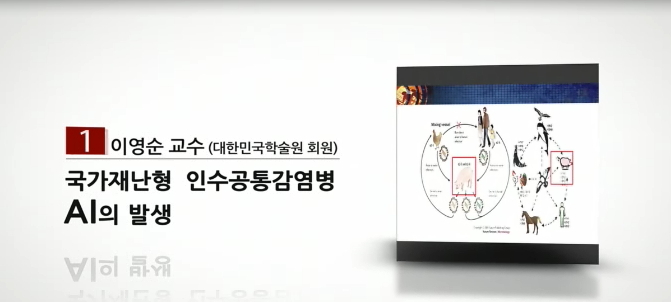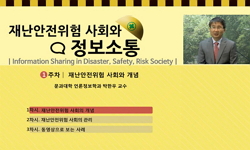감염병의 발생은 20세기 이후 기후변화, 도시화, 이동 편리성으로 증가하고 있다. 세계 각국은 COVID-19 대응에 있어서 큰 혼란을 겪었다. 한편 팬데믹 수준의 감염병 재난은 방역당국과 다양한...
http://chineseinput.net/에서 pinyin(병음)방식으로 중국어를 변환할 수 있습니다.
변환된 중국어를 복사하여 사용하시면 됩니다.
- 中文 을 입력하시려면 zhongwen을 입력하시고 space를누르시면됩니다.
- 北京 을 입력하시려면 beijing을 입력하시고 space를 누르시면 됩니다.

감염병 대응을 위한 민관협력 활성화 방안 연구 = A Study on the Promotion of Public-Private Partnership to Respond to Infectious Diseases
한글로보기https://www.riss.kr/link?id=A108391174
- 저자
- 발행기관
- 학술지명
- 권호사항
-
발행연도
2022
-
작성언어
-
- 주제어
-
KDC
530
-
등재정보
KCI등재
-
자료형태
학술저널
-
수록면
101-112(12쪽)
- DOI식별코드
- 제공처
- 소장기관
-
0
상세조회 -
0
다운로드
부가정보
국문 초록 (Abstract)
감염병의 발생은 20세기 이후 기후변화, 도시화, 이동 편리성으로 증가하고 있다. 세계 각국은 COVID-19 대응에 있어서 큰 혼란을 겪었다. 한편 팬데믹 수준의 감염병 재난은 방역당국과 다양한 사회 주체의 협력이 있어야 좀 더 효과적으로 대응할 수 있음을 알았다. 이에 우리가 최근 경험하였던 감염병 MERS와 COVID-19의 초기 대응사례를 비교 분석하였다. 특히 재난관리에 있어서 다양한 사회주체의 참여를 기반으로 하는 협력적 거버넌스를 바탕으로 비교 분석하였다. 협력적 거버넌스는 네트워크, 책임과 역할, 참여와 협조가 잘 이루어질 때 보다 효과적이다. 이에 3가지 핵심 요소를 가지고 감염병 재난대응 사례를 비교 분석하고 이를 근거로 효과적인 민관협력 활성화 방향을 제시하였다. 먼저, 정부는 기존 재난관련 네트워크조직에 대한 지원을 강화해야 한다. 또한 스마트사회 기반의 새로운 네트워크 구축이 필요하다. 두 번째, 재난관련 조직 및 참가자를 위한 재난교육 훈련의 확대, 중간지원조직의 강화, 이를 위한 정부의 역할 확대를 제시하였다. 마지막으로 의료인 중심의 재난관련 민간조직의 구성 및 기업의 참여확대를 위한 시스템 강화의 필요성을 주장하였다.
다국어 초록 (Multilingual Abstract)
Since the 20th century, the incidence of infectious diseases has been increasing owing to climate change, urbanization, and the convenience of movement. Countries worldwide have experienced great confusion in their response to COVID-19. At the same ti...
Since the 20th century, the incidence of infectious diseases has been increasing owing to climate change, urbanization, and the convenience of movement. Countries worldwide have experienced great confusion in their response to COVID-19. At the same time, we also found that we can respond to pandemics more effectively when quarantine authorities and various social entities cooperate. Therefore, we compared and analyzed the early response cases of MERS and COVID-19 that we recently experienced. In particular, a comparative analysis was conducted on cooperative governance based on the participation of various social entities in disaster management. Cooperative governance is more effective when networks, roles and responsibilities, participation, and cooperation are well established. Accordingly, the cases of disaster response for infectious diseases were compared and analyzed with three key factors, and based on these, effective directions for revitalizing public-private partnerships were suggested. They are as follows: First, the government should strengthen support for existing disaster-related network organizations. Additionally, it is necessary to build a new network based on a smart society. Second, it is important to expand disaster education and training for disaster-related organizations and participants, strengthen intermediate support organizations, and expand the government's role in these areas. Finally, we present the importance of strengthening the system to form disaster-related private organizations that are centered on medical personnel, and expanding corporate participation.
목차 (Table of Contents)
- 1. 서론
- 2. 선행연구 고찰 및 연구 분석 틀
- 3. 감염병 대응 사례분석
- 4. 감염병 대응 민관협력 활성화 방안
- 5. 결론
- 1. 서론
- 2. 선행연구 고찰 및 연구 분석 틀
- 3. 감염병 대응 사례분석
- 4. 감염병 대응 민관협력 활성화 방안
- 5. 결론
- 감사의 글
- References
동일학술지(권/호) 다른 논문
-
- 한국방재학회
- 김수현(Soohyun Kim)
- 2022
- KCI등재
-
강우량 및 지형정보 데이터를 이용한 한국형 토사재해 유발 강우량 산정 알고리즘 개발
- 한국방재학회
- 최정렬(Jung-Ryel Choi)
- 2022
- KCI등재
-
- 한국방재학회
- 정종호(Jongho Jeong)
- 2022
- KCI등재
-
- 한국방재학회
- 임찬진(Chan Jin Lim)
- 2022
- KCI등재
분석정보
연관 공개강의(KOCW)
-

국가재난형 인수공통감염병 AI의 발생
한국교육학술정보원 이영순 -

재난커뮤니케이션 (Disaster Communication)
K-MOOC 국가민방위재난안전교육원 이충현 -

재난관리 리더십과 재난대응 협업 (Disaster Management Leadership and Collaboration for Disaster Response)
K-MOOC 국가민방위재난안전교육원 NDTI International Cooperation Team -

한국의 재난관리체계 (Disaster Management System in Korea)
K-MOOC 국가민방위재난안전교육원 차정회, 국가민방위재난안전교육원 국제협력팀 -

재난안전 위험사회와 정보소통
영남대학교 박한우




 스콜라
스콜라


